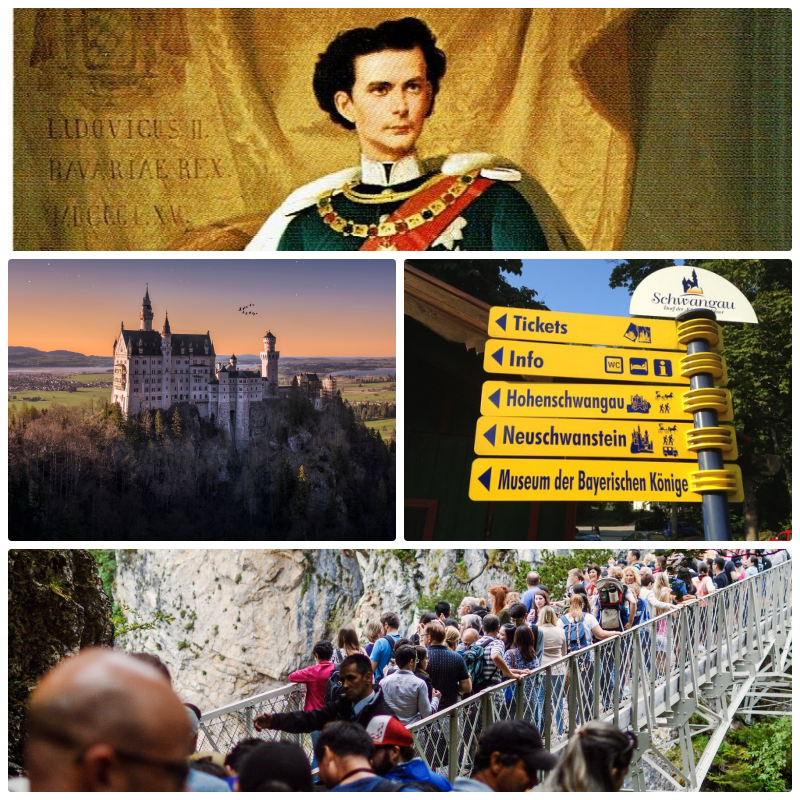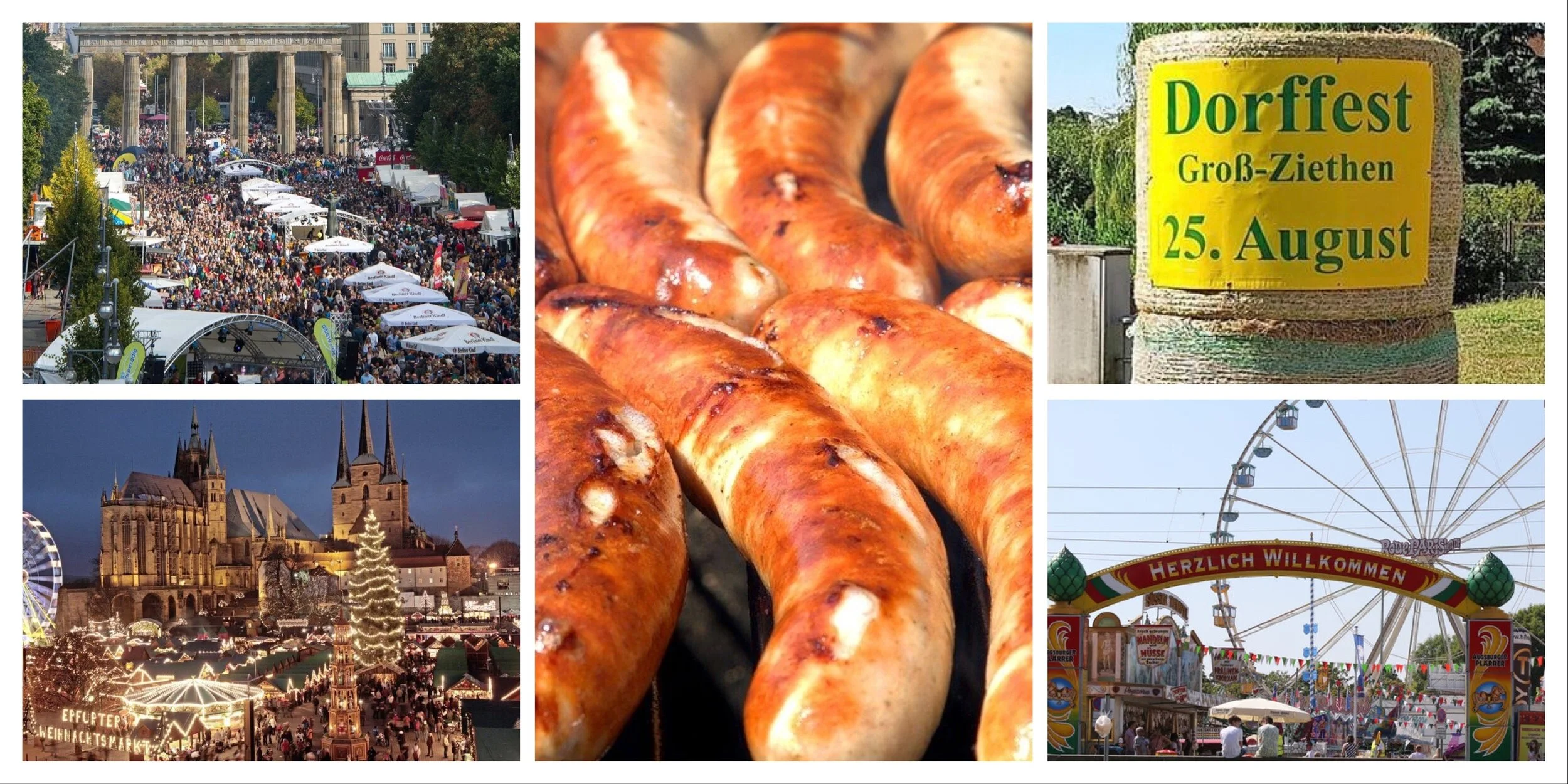The Constant Debate
One challenge of discussing national cultures is that they’re almost impossible to define with any precision. What makes someone French, British or Spanish can come down to personal perceptions, regional experience, and influence of social groups, meaning that there is never any guarantee that what one person considers an exemplar of their national culture will match the opinions of others. The best attempt I’ve come across to define what “culture” actually is comes from Professor Helen Spencer-Oatey, who explains it as:
“A fuzzy set of basic assumptions and values, orientations to life, beliefs, policies, procedures and behavioural conventions that are shared by a group of people, and that influence (but do not determine) each member's behaviour and his/her interpretations of the 'meaning' of other people's behaviour”.
Those assumptions are as good as it gets, and in a country like Germany, with so much political and historical regionalism, it only gets more “fuzzy” the longer anyone attempts to explicate German national culture. After all, Germany may look like a unified whole, but actually it’s a collection of 16 different countries, or as the Germans call them “Länder”. Besides the 16 officially recognised states there are numerous smaller and often older unofficial states, such as Swabia, that have distinct regional and historical identities. The result is a political unification, but not necessarily a cultural one.
Another complication on the road to understanding Germany is that divisions across the country seem to have created a way of thinking that ironically could be considered national. Germans suffer from a deeply ingrained sense of postmodern thinking, which is to say that what some claim as ubiquitous symbols of Germanness in one Bundesland will be criticised as examples of regional, rather than national, culture by those who have never seen those symbols in their own state. What’s curious is how quickly Germans will label well established “fuzzy assumptions” like directness, honesty of opinion, or timekeeping as non-German or regional variations, despite a wealth of anecdotal and scientific evidence to the contrary.
What complicates this milieu of opinions and identities is the fact that outside Germany, there is a very clear understanding of what Germany is all about. Lederhosen loving, Brezel-baking sausage munchers would be the most succinct way of compiling the stereotypes non-Germans believe to be gospel truth. Most Germans would recognise the description to some extent, but they would describe the outside perspective of Germany in one word: Bayerisch. These stereotypes are true, many will tell you, but only as descriptors of Germany’s most southern state, Bavaria.
Moreover, many non-Bavarian Germans consider Bavaria to be the least German state of all, which is to say that there’s a vast swath of the population that aren’t even sure if one of the 16 states that make up the country is actually even part of it. So how did the least German state come to represent the whole of Germany? Well, we could probably point a finger at the USA, at least indirectly. The south of Germany was mostly occupied by US troops following the end of WWII. This experience, coupled with the US dominating global culture for much of the 20th century, means their assumptions about Germany have become the world’s assumptions. With the advent of the Internet, this particular view of Germany has crystallised.
What all this tells us is that if there’s anything we can label as German it’s a strong sense of regional identity and difference. What might bind all Germans together is the sense that to be German is to not be German. And who would want to be simply German anyway? When we look at national trends, they strip Germany of all the things most Germans love about their country. As an example, take bread culture, which consists of over 3,000 varieties, but when we look at the most popular type of bread in the whole country, we find that it’s Toastbrot, the much maligned generic supermarket loaf, one which any German will tell you is not really bread at all. The same could be said for beer, with the most sold brand being Krombacher, a nice tipple for sure, but not one many Germans would consider representative of “their Germany”, except perhaps the people of the Krombach district. Germanness should be considered the backbeat, the rhythm section, but the melody of the states is always different. Some might see this as a weakness, an inherent lack of unity, but in many ways I believe Germans have made it work in their favour.
For one thing, it makes Germany incredibly fun to travel around, with the variations on a theme making each place visited more interesting for the wealth of regional difference. Architecture, music, art, traditions, food, language, all can shift at the border of a state, creating a patchwork of alternative realities, all of which are still Germany. If you happen to be travelling the country, and you find one Germany less than appealing, travel an hour down the road and you might find another that is more to your liking.
Politically, regional thinking is much maligned as a block to progress, but when politics functions properly, it should be a strength. Accepting that each state legislature has a responsibility to their own citizens is not inherently bad, and can make sure that one region doesn’t dominate the others. In practice this isn’t always how things pan out, after all, my own state of Bavaria has more influence in central government because it has a specifically Bavarian conservative party, the CSU, that aligns itself with the national conservative party in the CDU. That being said, it doesn’t necessarily mean that these two groupings agree, nor does it mean state representatives of a national party will wholly defer to the national leadership. This can create nuances in politics that can benefit people at a local level, and in a broad sense prevent the worst excesses of group-think that leads to awful national policies. The most recent example of this in action was the condemnation faced by Friedrich Merz, the CDU leader, after an interview in which he suggested his party could work with the far right in some instances. The condemnation from within his own party was frequently shaped by regional perspectives.
The assortment of different Germanies can also impact entertainment, with regions working as shorthand and often integral to the story being told. Gritty dramas may be set in Berlin, stories of country life or placid comedies in the south, while the vast northern coastline plays well with any story involving isolation or introspection. The most famous example of the uses that are made of Germany’s heterogeneity comes most Sundays in the form of ARD's long running police drama 'Tatort', which shifts between different police units across the country, episode to episode. Though prestige TV makes good use of German diversity, you will find it in most reality TV shows that move from state to state, or others that focus entirely on one specific area of the country.
Trying to define Germany is probably impossible, a Sisyphean task that will always see any definition crushed under the weight of regional perspectives. No matter how much research I do, no matter how long I live here, I will always be told my assessments are flawed and that they don’t match the experiences of others in the country. That’s fine by me, after all Germany isn’t so much a country as an ongoing debate, and at times an argument between 85 million perspectives. It can be confusing, it may well wear you out, but it’s always a debate worth having.
Proofreader: @ScandiTina
Image Credit
Photo by Norbert Braun on Unsplash
Photo by Florian Weichelt on Unsplash
Photo by Artists Eyes on Unsplash
Photo by Antonio Feregrino on Unsplash
Photo by Brandy Willetts on Unsplash
Photo by Alexander Bagno on Unsplash
Photo by Tobias Tullius on Unsplash
Photo by Alessandro Valenzano on Unsplash









